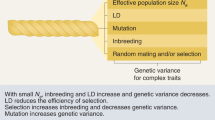Abstract
ONE misapprehension must be dealt with. Quite intelligent people often seem to think that, when a new theory wholly or partly replaces an old one, the whole fabric of the relevant branch of science has to be scrapped. That, of course, is quite incorrect. For example, the acceptance of relativity theory has not involved the jettisoning of classical Newtonian mechanics, but has in the great majority of cases only meant a slight correction, negligible for most purposes, in a number of laws. The body of ascertained knowledge remains : it has merely to be rendered more exact and incorporated into a more comprehensive framework. The same holds for neo-Mendelism : whatever new theories Lysenko or anyone else may contribute to genetics, the vast body of scientific fact comprised in neo-Mendelism remains as a contribution to our knowledge of the universe. (The difference between the two examples is that whereas Einstein has successfully introduced a radically new theory, or framework of ideas, to correlate the physical facts involved, there is at present no prospect of neo-Mendelian theory being overthrown by Lysenko's ideas–they are too vague to deserve the title of a framework—or, indeed, by any other general theory of genetics and evolution.)
This is a preview of subscription content, access via your institution
Access options
Subscribe to this journal
Receive 51 print issues and online access
$199.00 per year
only $3.90 per issue
Buy this article
- Purchase on Springer Link
- Instant access to full article PDF
Prices may be subject to local taxes which are calculated during checkout
Similar content being viewed by others
Rights and permissions
About this article
Cite this article
HUXLEY, J. Soviet Genetics : The Real Issue*. Nature 163, 974–982 (1949). https://doi.org/10.1038/163974a0
Issue Date:
DOI: https://doi.org/10.1038/163974a0
This article is cited by
-
The Value of ‘Traditionality’: The Epistemological and Ethical Significance of Non-western Alternatives in Science
Science and Engineering Ethics (2021)
-
Lysenkoism in Poland
Journal of the History of Biology (2012)
-
“Soviet Genetics: the Real Issue”
Nature (1950)
-
Soviet Genetics: The Real Issue
Nature (1950)
Comments
By submitting a comment you agree to abide by our Terms and Community Guidelines. If you find something abusive or that does not comply with our terms or guidelines please flag it as inappropriate.



